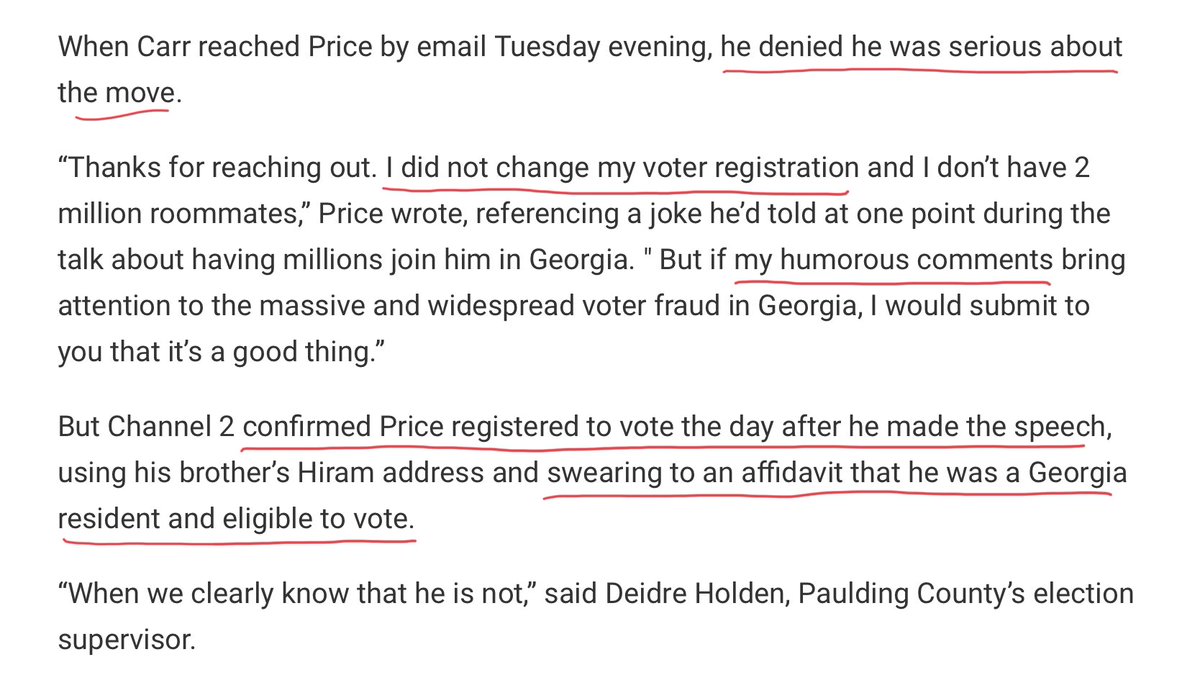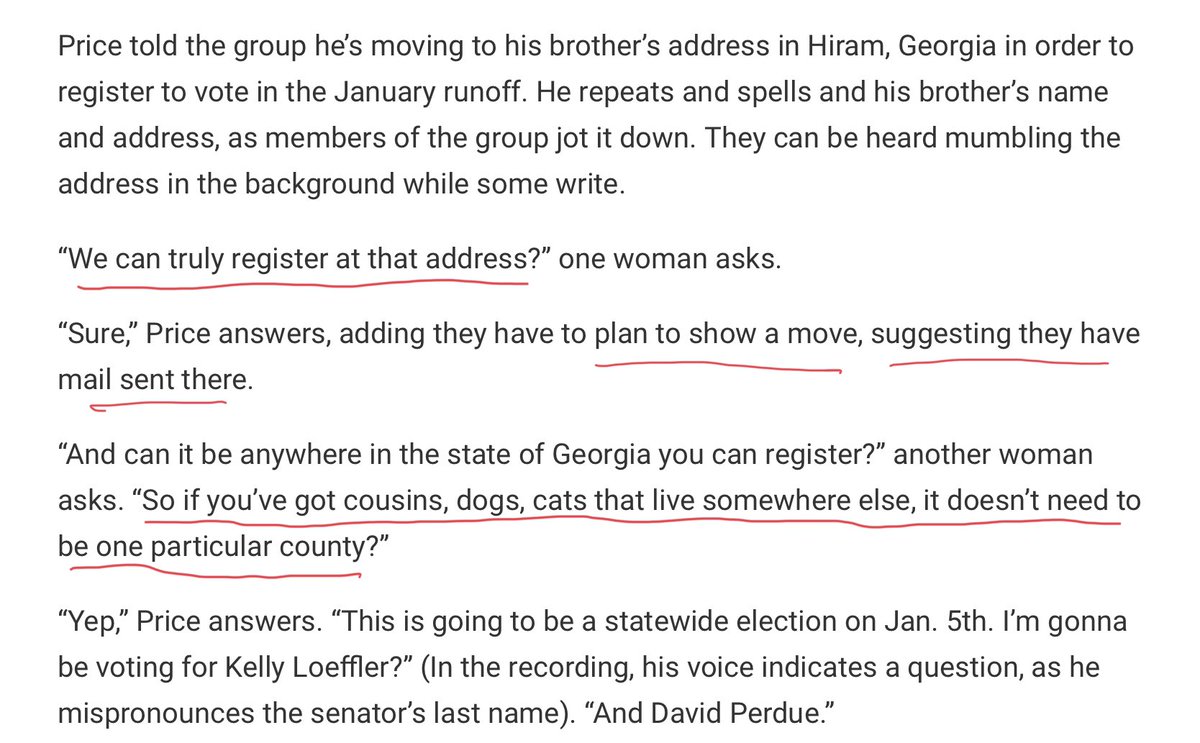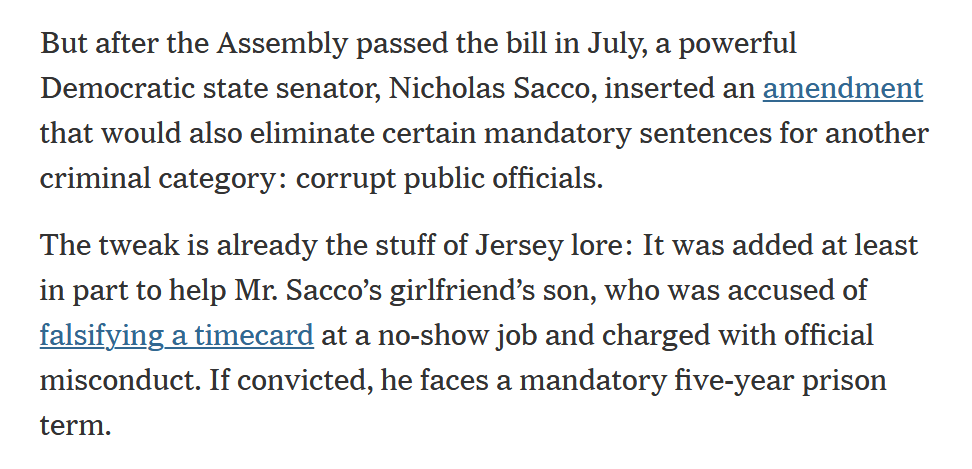Thus bypassing all restrictions , tariff, tax, human rights, climate change legislation - everything
A Warning:
The 'Freeports' in at least 10 locations in Britain will evolve into Charter Cities with their own laws. They will NOT be legally bound to ANY of the trade agreements between the UK and EU or any other country. They will be used to bypass all International scrutiny
Thus bypassing all restrictions , tariff, tax, human rights, climate change legislation - everything
More from Law
2/ A pretty kickass reporter, Nicole Carr, recorded the video before the guy took it down. When she confronted him he insisted it was all a joke and of course he didn’t register in Georgia. But she checked and he had.
3/ This is Nicole Carr ...
\u201cIf that means changing your address for the next two months,so be it.I\u2019m doing that. I\u2019m moving to Georgia.\u201dOur 6 investigation reveals deleted video-a FL attorney telling GOP members how to move to GA,vote in runoffs. It\u2019s illegal.There\u2019s more,& an investigation @wsbtv #gapol pic.twitter.com/or2PgWQrT1
— Nicole Carr (@NicoleCarrWSB) December 2, 2020
4/ amazing. Here’s where she catches him 🤣🤣🤣🤣🤣🤣🤣🤣🤣🤔🤔

5/ Also on the video you’ve got these ladies saying, hey wait, this can’t really be legal can it? And he’s like, yeah totally cool. Then he advises on how to create a backstory for the fake move.

You May Also Like
Like company moats, your personal moat should be a competitive advantage that is not only durable—it should also compound over time.
Characteristics of a personal moat below:
I'm increasingly interested in the idea of "personal moats" in the context of careers.
— Erik Torenberg (@eriktorenberg) November 22, 2018
Moats should be:
- Hard to learn and hard to do (but perhaps easier for you)
- Skills that are rare and valuable
- Legible
- Compounding over time
- Unique to your own talents & interests https://t.co/bB3k1YcH5b
2/ Like a company moat, you want to build career capital while you sleep.
As Andrew Chen noted:
People talk about \u201cpassive income\u201d a lot but not about \u201cpassive social capital\u201d or \u201cpassive networking\u201d or \u201cpassive knowledge gaining\u201d but that\u2019s what you can architect if you have a thing and it grows over time without intensive constant effort to sustain it
— Andrew Chen (@andrewchen) November 22, 2018
3/ You don’t want to build a competitive advantage that is fleeting or that will get commoditized
Things that might get commoditized over time (some longer than
Things that look like moats but likely aren\u2019t or may fade:
— Erik Torenberg (@eriktorenberg) November 22, 2018
- Proprietary networks
- Being something other than one of the best at any tournament style-game
- Many "awards"
- Twitter followers or general reach without "respect"
- Anything that depends on information asymmetry https://t.co/abjxesVIh9
4/ Before the arrival of recorded music, what used to be scarce was the actual music itself — required an in-person artist.
After recorded music, the music itself became abundant and what became scarce was curation, distribution, and self space.
5/ Similarly, in careers, what used to be (more) scarce were things like ideas, money, and exclusive relationships.
In the internet economy, what has become scarce are things like specific knowledge, rare & valuable skills, and great reputations.














